CASBS Summer Institute on Diversity - 2023
Participants
Boróka Bó
University College Dublin
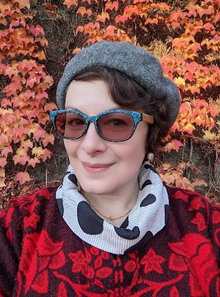
While I am not the same Boroka as the “viscera sucker of Zambales,” I was born on the ancestral and unceded land of the Székelys of Transylvania. I spent my childhood under the shadow of a dictator, arriving in the United States as a political refugee. To finance my undergraduate education, I tried my hand at multiple (often simultaneous) occupations. Some of my favorites were working in a bookstore and as a counselor of foster youth, though I also think fondly of the years I worked as a special education coordinator, factory worker, graphics designer, Chinese medicine doctor, and tech CEO. Through all my adventures in work and life, I found myself turning to the social sciences to understand the larger structural forces shaping my world. Working with – and belonging to – marginalized populations led to the realization that my passion lies in socially responsible research and education. I developed my academic skills on the ancestral and unceded land of the Chochenyo Ohlone, in the joint Ph.D Program in Sociology and Demography at the University of California, Berkeley. I am currently an Assistant Professor of Sociology at University College Dublin.
Melissa Brown
Santa Clara University

Dr. Melissa Brown is an Assistant Professor in the Department of Communication at Santa Clara University, where she teaches courses on topics such as media and technology studies, digital feminisms, and dating in the digital age. Prior to arriving to SCU, she earned her Ph.D in Sociology at the University of Maryland, before she completed a postdoctoral research fellowship with the Clayman Institute for Gender Research at Stanford University. Dr. Brown takes an interdisciplinary approach to her scholarship, drawing on insights from Black feminist thought, critical race theory, and digital sociology to analyze the complex interactions of race, class, gender, and sexuality in a digital society. With a particular emphasis on Black people's experiences, her research focuses on how digital media representations shape our understanding of knowledge, identity, power, and social justice. Her research on anti-racism, Black feminist activism, and Black digital culture appears in Ethnic and Racial Studies, Sociology Compass, and several edited volumes including Black Feminist Sociology and Networked Feminisms. She is also aco-author of the Brookings Governance report “Bystander intervention on social media: Examining cyberbullying and reactions to systemic racism,” which explores strategies to resist the proliferation of racist discourse on online social networks.
In addition to her scholarship, Dr. Brown is also an active member of the Santa Clara community, serving on several working groups on digital pedagogies. She also mentors students in communication research and is known for her supportive and collaborative approach to teaching and research. Overall, as a scholar and educator, Dr. Brown works to make important contributions to our understanding of the intersections of race, gender, and media. Furthermore, her commitment to social justice and equity is evident in both her scholarship and her community involvement.
Ivan Carbajal
Oregon State University
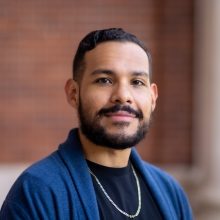
My research program is aimed at increasing the study of marginalized groups, specifically Latinx, in the psychological sciences by utilizing a range of methodological, statistical, and culturally sensitive research approaches. These include quantitative, qualitative, psychophysiological, and self-report. In regard to analytic considerations, I prioritize multilevel modeling in my research. Specifically, I employ intra-individual and longitudinal multilevel modeling analyses to parse the effects of person-centered variables (e.g. demographics) on behavioral and psychophysiological trial-level data. My approach to research is also one founded in culturally adaptive and sensitive approaches. This is manifested in developing projects with a particular sample in mind and adapting the materials, incentives, and theoretical approach to properly contextualize my recruitment and analysis. I also strive to promote transparency of my research methods by using the open-source statistical software R and by making data publicly available on Open Science Framework. My work, overall, reflects the integrative and interdisciplinary approach that is central to my research program where I bridge my diverse expertise in cognitive psychophysiological methods with my work in cultural psychology.
Chelsey R. Carter
Yale University

Chelsey R. Carter is an Assistant Professor of Public Health in the Department of Social and Behavioral Sciences at Yale University, with a secondary affiliation in the Department of Anthropology. Dr. Carter has expertise in medicine, public health, and race. Her research program examines how scientific knowledge production, clinical care, and systemic marginalization impact historically underrepresented communities affected by neurodegenerative diseases, like ALS, and genomic medicine. Dr. Carter is also undertaking a book project which includes an ethnographic study of the diverse experiences of living with ALS, which draws on over 15 years of experience with Black communities affected by ALS. Her scholarship has been funded by the National Science Foundation, the Andrew Mellon Foundation, the Wenner Gren Foundation, the Ford Foundation, the ALS Association, the National Institutes of Health and more. She serves as an executive board member for the Society for Medical Anthropology and from April 2022 – January 2023. She was a working group member for the NIH/NINDS Strategic Plan on ALS and currently serves on the National Academies’ (NASEM) “Amyotrophic Lateral Sclerosis: Accelerating Treatments and Improving Quality of Life” study. Dr. Carter was a Presidential Postdoctoral Research Fellow at Princeton University in the Department of Anthropology and Center for Transnational Policing. She received her Bachelor’s degree in Anthropology with a minor in Spanish (high honors) from Emory University. She holds a Ph.D in Sociocultural Anthropology, a Master of Public Health, and Certificate in Women, Gender, and Sexuality Studies from Washington University in St. Louis.
Edward Chang
Harvard Business School

Edward Chang (he/him/his) is an Assistant Professor of Business Administration in the Negotiation, Organizations & Markets Unit at Harvard Business School. He teaches Inclusion in the MBA required curriculum. Edward studies diversity, equity, and inclusion in organizations. The primary goal of his research is to provide evidence-based solutions to managers and organizations wanting to promote diversity, equity, and inclusion. He runs large-scale field experiments, analyzes archival data, and conducts online and laboratory experiments to carry out his research. Edward earned a Ph.D in Operations, Information and Decisions from the Wharton School of University of Pennsylvania. He holds a B.A in Mathematics and Philosophy from Yale University. Prior to pursuing his Ph.D, he worked as a data scientist for technology startups.
Justine Davis
University of Michigan
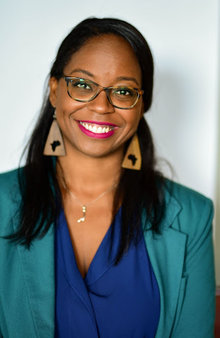
Justine Maisha Davis is an assistant professor jointly appointed in the Department of Afroamerican and African Studies (DAAS) and the department of political science at the University of Michigan. She holds a Ph.D from the University of California, Berkeley, was an LSA Collegiate Postdoctoral Fellow at the University of Michigan, a UC presidential postdoctoral fellow at the University of California, San Diego, and holds a master’s degree from the American University of Paris and la Sorbonne-Paris I. Her research interests include electoral violence, civil society, and the challenges to democratization efforts in post-conflict settings and weakly institutionalized democracies. Her dissertation, “Wartime Experiences of Civic Leaders: Legacies of Civil War, Rebel Control, and Democratization in Post-Conflict Africa,” won the Western Political Science Association best dissertation award in 2020. She also won the Ralph Bunche Best Graduate Student Paper in 2018 Award from the African Politics Conference Group, an organized section of the American Political Science Association and the African Studies Association. Her research has been published or is forthcoming in African Affairs, Comparative Political Studies, Party Politics, PS: Political Science & Politics, and the South African Geographical Journal.
Afiya Fredericks
University of the District of Columbia

Dr. Afiya Fredericks is an Assistant Professor of Psychology at the University of the District of Columbia. Her research agenda includes understanding the impact of implicit beliefs on motivation and achievement, and how to cultivate more inclusive learning environments. She is a recent recipient of the prestigious NSF CAREER grant award for $1.6 million, focused on better understanding how research on implicit beliefs can be leveraged to create more equitable learning environments for minoritized students in STEM.
Dr. Fredericks has been immersed in mindset research for over a decade now. She first stumbled upon this work while in her doctoral program at Howard University. Once discovered, she recognized how the work could transform every aspect of her life. Since then, she has dedicated her life to leveraging this work to transform the lives of others, particularly for those who have been disenfranchised and underserved. Dr. Fredericks is the Principal Investigator of the Implicit Beliefs and Unlimited Potential (IB-UP) Lab, where she takes pride in mentoring her students and supporting them in recognizing their unlimited potential. As a life-long learner, Afiya believes that embodying a growth mindset is a beautiful journey, one that she works on daily. Dr. Fredericks is a proud US Virgin Islander and enjoys opportunities to escape home to the beautiful island of St. Croix.
Jin Xun Goh
Colby College

Jin X. Goh is an assistant professor of psychology at Colby College in Maine. Jin is a social psychologist who is interested in how our social identities (e.g., gender, race, sexual orientation) shape the way we perceive and interact with others. Currently, he is focusing on how people perceive and stereotype Asian Americans. Jin completed his Ph.D at Northeastern University and his postdoctoral training at the University of Washington. He received his B.A from Bard College. He is currently spending his sabbatical as a visiting researcher at the University of Illinois Chicago. In his free time, Jin likes to read, binge the latest Netflix show, and try out different restaurants in Chicago.
Sohad Murrar
University of Illinois
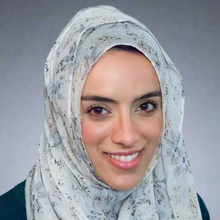
Sohad Murrar is an Assistant Professor in the Department of Psychology at the University of Illinois Chicago. She researches how to change people's attitudes, perceptions, and behaviors with subtle messaging to create positive social change. Her research focuses on (i) how entertainment media (e.g., TV shows) can be leveraged to deconstruct prejudices, (ii) how norms messaging shapes intergroup attitudes and behaviors, and (iii) how being a social minority affects psychological and professional outcomes in different contexts (e.g., higher education, academic medicine). Leveraging her expertise, Murrar consults on the representation of minorities in films, television, and educational materials. She received her Ph.D and M.S in Psychology from the University of Wisconsin-Madison, M.A. in Comparative Human Development from the University of Chicago, and B.A in Psychology and Asian & Middle East Studies from Northwestern University.
Oneya Okuwobi
University of Cincinnati
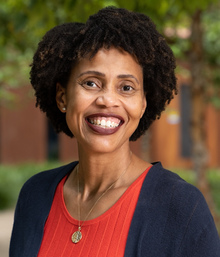
Oneya Fennell Okuwobi is an Assistant Professor of Sociology at the University of Cincinnati. Her research integrates the sociology of race, organizations, and religion to interrogate the effects of diversity practices in organizations. Specifically, this includes work to examine how racial status differences affect interactions in diverse organizations and how diversity ideology and the practices it informs affect racial inequality. Her work has appeared in American Sociological Review, Sociology of Race and Ethnicity, Social Psychology Quarterly, and Sociology of Religion among other venues. Her current book project with University of California Press is entitled: Why Diversity Programs Fail: How Initiatives Fall Short in Achieving Racial Equity and What to Do About It. In it, Oneya finds that the pervasive commodification of employees of color in the name of diversity leads to heavy work burdens, threatened organizational and personal legitimacy, and subjugated identity- all of which hinder the well-being and opportunities for career advancement of employees of color. Oneya was previously a corporate finance manager with 14 years’ experience in strategic business planning, category expansion, and organizational leadership. She is a graduate of the University of Virginia (B.A., Economics), Regent University (M. Div., Practical Theology), and The Ohio State University (Ph.D., Sociology). Oneya is married to Dele Okuwobi and they have one daughter, Cadence.
Andrew Thompson
George Washington University

Dr. Thompson’s research examines how threat and anxiety shift attitudes about American democracy. Specifically, he explores how racial demographic changes motivate stronger support for anti-democratic practices among the American public. He shows that partisan considerations and elite rhetoric are central to understanding how Americans process information about the changing U.S. demographic landscape, and how supportive they are of anti-democratic policies. Ultimately, Dr. Thompson shows that as the country diversifies, democratic considerations and overall support for American democracy are bound to shift dramatically among the mass public.
Heidi Vuletich
University of Denver
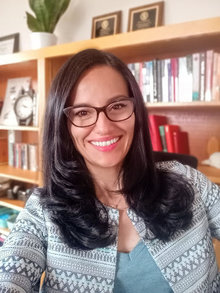
Heidi A. Vuletich is an Assistant Professor at the University of Denver. She obtained her Ph.D in Psychology from the University of North Carolina at Chapel Hill and did her postdoctoral training at the University of Indiana Bloomington. She investigates how social inequalities affect cognition and behavior. In particular, her work examines how inequality influences social perceptions, evaluations, decision-making, and motivation. She is interested in how these processes in turn contribute to social inequities by race, gender, and socioeconomic status. For example, some of her work examines how structural inequality relates to racial implicit bias. Heidi is also interested in disparities in education, particularly in STEM domains. Recently, she has been developing a theoretical framework for understanding how temporal perceptions shape achievement motivation. Heidi is originally from Mexico and still has deep roots in there.
Leadership
Jennifer Richeson
Yale University

Despite our nation’s tumultuous racial history, Americans generally believe the country has made and continues to make steady, linear, and perhaps automatic, progress toward racial equality. During the CASBS fellowship period, Jennifer Richeson will work on a book tentatively titled, the mythology of racial progress. The goal of the book is to offer a comprehensive examination of the role that belief in, and perhaps allegiance to, this racial progress narrative plays in maintaining a profound ignorance regarding the actual state of racial inequality in our nation. Richeson is the Philip R. Allen Professor of Psychology at Yale University. Much of her recent research considers the political consequences of the increasing racial/ethnic diversity of the United States. Richeson also investigates how people reason about and respond to different forms of inequality and the implications of such processes for detecting and confronting injustice. She is an elected member of both the National Academy of Sciences and the American Academy of Arts and Sciences. In 2006, she was named one of 25 MacArthur “Genius” Fellows for her work “highlighting and analyzing major challenges facing all races in America and in the continuing role played by prejudice and stereotyping in our lives,” and, in 2019 she received an honorary doctorate from Brown University for work that “expands the boundaries of knowledge on interracial interaction and the living contexts of diversity.” She is also the recipient of 2020 SAGE-CASBS Award.
Mary Murphy
Indiana University Bloomington
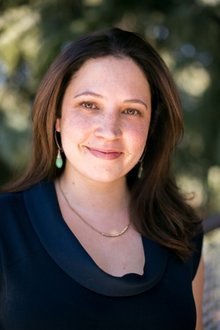
Mary C. Murphy is the founding director of the first CASBS Summer Institute on Diversity (coming summer 2022). She will spend the year fundraising, developing, and implementing the Institute. The CASBS Summer Institute will engage in field building around social scientific investigation of when, how, and why difference makes a difference and will develop an on-going collaboration and support network of early career and established scholars from backgrounds underrepresented in higher education. Murphy is also completing a book, Cultures of Growth, contracted with Simon & Shuster, that describes her 10 years of research on reconstruing mindset as a cultural feature of mainstream settings such as organizational and educational settings. She shows how these organizational mindsets shape people’s motivation, engagement, behavior, and performance; companies’ and schools’ culture and organizational performance; and the diversity, equity, and inclusion of organizational and educational settings. Murphy is the Herman B. Wells Endowed Professor of Psychological and Brain Sciences at Indiana University. She is a co-founder of the College Transition Collaborative, a research-practice partnership housed at Stanford University dedicated to equity, growth, and belonging in higher education. In the area of organizations and tech, her research examines barriers and solutions for increasing gender and racial diversity and inclusion in STEM fields. In 2019, Murphy was awarded the 2019 Presidential Early Career Award for Scientists and Engineers (PECASE), the highest award bestowed on early career scholars by the U.S. Government. Murphy was a CASBS fellow in 2015-16 and is a research affiliate in 2021-22.
Sylvia Perry
Northwestern University
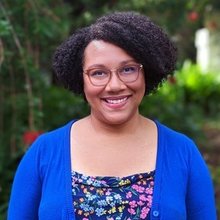
During her year at CASBS, Sylvia Perry will focus on manuscripts that stem from two major lines of work. The first line will focus on the extent to which norms around admitting and discussing racism may contribute to anti-racism. This work will inform our understanding of the verbal and nonverbal signals that White individuals may send to others when they witness racism, how these signals shape norms around anti-racist behaviors, and the role of personal awareness in confronting prejudice when individuals witness racist behavior. The second line will focus on the role of racial parental socialization in the development of White children’s attitudes toward Black individuals. This work will inform our understanding of how parents’ (spoken and unspoken) racial socialization messages may contribute to the development of prejudice in White children.
Perry is an associate professor of psychology and an Institute for Policy Research faculty fellow at Northwestern University. Her research is situated at the intersection of social, developmental, and health psychology. She investigates how racial bias awareness develops, and the implications of bias awareness for prejudice reduction, intergroup contact, and health disparities. Her work has been published in top journals such as the Journal of Personality and Social Psychology, Psychological Science, and Social Science & Medicine. In 2020, she received the SPSP SAGE Young Scholar Award.
For more information, please visit her website: www.sciplab.com
